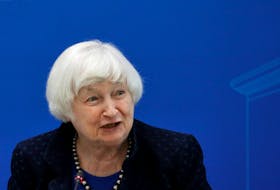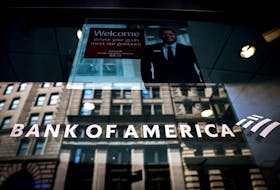BEIJING (Reuters) - China's banks should brace for a big jump in bad loans due to coronavirus-induced economic pain, the financial regulator said on Saturday, noting the deterioration of asset quality at some small and mid-sized financial institutions was accelerating.
China's Banking and Insurance Regulatory Commission said in a statement that profit growth would slow sharply at some banks while others could see profits decline.
If banks were to make the minimum amount of provisions for their non-performing loans, which some have yet to do, profits for the sector would fall by more than 350 billion yuan ($50 billion), the statement said.
Data from the commission shows that Chinese commercial banks booked 2 trillion yuan in profits in 2019, up 8.9% from a year earlier.
Outstanding non-performing loans in the sector totalled 3.6 trillion yuan as of end-June, while the bad loan ratio rose to 2.10%, 0.08 percentage points higher than the beginning of the year, the statement said.
Small firms have been allowed to delay loan and interest payments and the central government has called on the country’s financial institutions to sacrifice 1.5 trillion yuan in profits this year to help counter the economic impact of the virus on companies.
Beijing has also allowed local governments to use the proceeds of special bonds to replenish the capital of certain small banks.
The regulator warned of illegal fund flows into real estate and the stock market, and of renewed risks in the shadow banking sector without elaborating.
It also vowed to strengthen regulation of capital flows and crack down on speculation in the financial sector to prevent asset bubbles.
(Reporting by Lusha Zhang, Cheng Leng and Ryan Woo; Editing by Edwina Gibbs)









